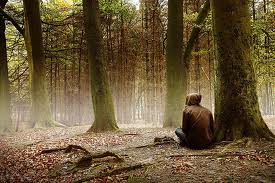No, that is not hyperbole. Learning is that demanding, and its calamity visits in direct proportion to the body of knowledge that holds sway."The programs of certainty are an assault on mystery, bringing mystery to heel, training it to pee in the box in the corner. Learning is something like a counterintuitive willingness to be mystified, to be on the receiving end of a world that, in its dignified manner, does not give itself away, or succumb, or dissolve into its constituent parts. Learning is the case you make for mystery, and ambivalence is the courtesy learning extends to what it would romance.
Learning is savagely, unjustifiably expensive. It ravages your prior life. It opens the box where everything once called dangerous or useless was placed long ago, and it mixes them up, switches the labels, makes it harder than ever to tell the difference and be sure. Learning is ruthlessly proceeding without recourse to your readiness to learn or to proceed otherwise, without preventing consequence or considering it first. Not learning, alas, is more expensive yet.
"
Getting yourself out of the equation will help, and placing the emphasis on learning instead of on feeling better about imprecision will help, too. Learning rarely starts with an intent to learn. It can start with an almost aimless willingness to stop what you were doing. What you were doing was living in the house--the citadel--of what you knew to be so."The beginning is not to come back home for awhile. Just go out of the house, the holding cell of certainty and conviction, and consider that outside a legitimate place to be.
"
"But behind me is every true and noble thing. It's madness, it's irresponsible to leave it." You could believe that. Behind you is certainty, where you'll find every familiar thing. The handle of the door is an angel you wrestle. Exhausted by the work and driven near to madness because there's still a handle and a door after all that, you let go of it and lurch through. Whether in that moment you believe this, or believe anything, you lurch through, and it is done. That's crisis for you: going outside. That's the old meaning of ecstasy. Not "thrill", nor "joy". It meant "going out from what prevails".
-- Stephen Jenkinson, from Come of Age
Sometimes a man stands up during supper
and walks out the door, and keeps walking,
because of a church that stands somewhere in the East.
And his children say blessings upon him
as if he were dead.
-- Rainer Maria Rilke, tr. Robert Bly








